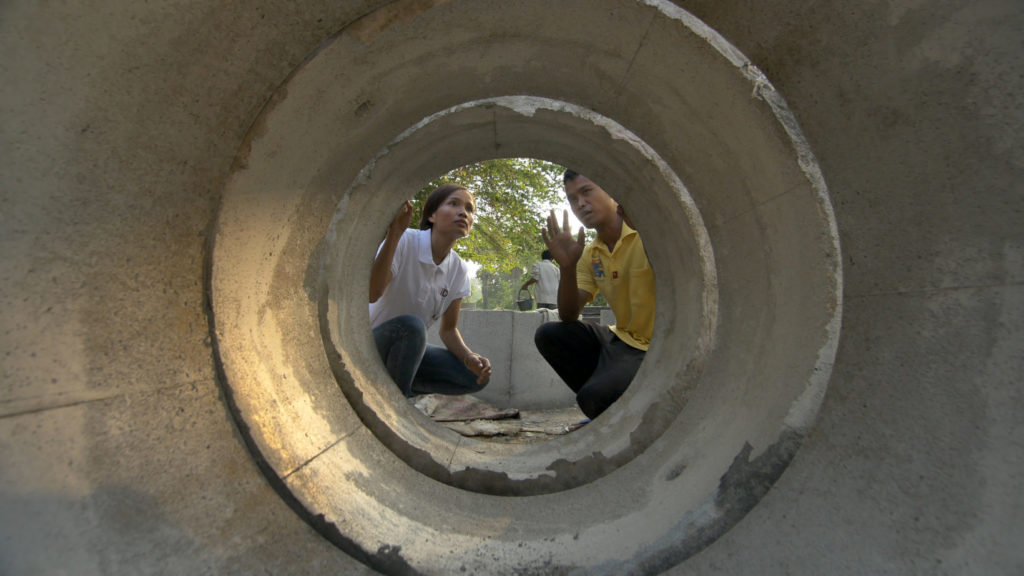
Search
Two of the most challenging issues facing organizations with logistics operations is the pressure to ensure supply chain transparency and sustainability. In an age of highly complex and technologically advanced business processes, organizations, governments, key stakeholders and consumers increasingly want more visibility throughout the entire supply chain process.
Yet according to the authors of an article appearing in the Winter 2016 issue of the MIT Sloan Management Review:
“However, many companies have limited visibility of their supply chain information, have a poor understanding of their capabilities for capturing and reporting this information, and have not overtly considered their supply chain information disclosure strategy.”
The article goes on to list a number of approaches organizations are considering to improve supply chain transparency, “…which typically involve trade-offs between cost or effort and quality.” Strategies range from low-cost data collection in which suppliers use spreadsheets or SMS surveys, to more complex technologies like product barcodes or QR codes that can provide data in real-time. There’s even the option of third-party accreditation and auditing.
Non-profit organizations and social enterprise want visibility in the last mile.
Some social enterprises and non-profit development organizations are gaining supply chain transparency by using mobile data collection and cloud-based CRM tools to track goods in real-time and manage logistics even while offline. For organizations operating in remote areas of the world, such as iDE, an international non-profit focused on market-based development approaches and Peripheral Vision International, a consulting firm using innovative media strategies for social change, maintaining visibility throughout the supply chain is a challenge they’ve tackled with TaroWorks software on handheld devices and a cloud-based Salesforce.com database and analysis system.
In the early days of iDE’s WASH program (Water, Sanitation and Hygiene) in Cambodia, there was a clear imbalance in the supply chain made more complicated by a shortage of real-time data. High salesperson turnover, which is not unusual for a commission-based sales force like iDE uses to sell toilets, caused periods of low demand and related product surpluses while manufacturing fluctuation also contributed to demand outpacing supply. (Read More)

Credit: iDE’s WASH Program
Success Through Persistence
“We’ve had a big impact on the supply chain and therefore the problem we are trying to solve with this information system,” said iDE WASH Director Michel Dauguet, during a TaroWorks webinar outlining the project’s progress.
But success wasn’t immediate as bringing such change to existing business processes can result in one or two steps backwards before moving ahead:
“Immediately after the rollout of the system we were performing less good than before,” Dauguet explained during the webinar presentation. “That was a moment when we had to keep steady. There were small glitches, there were process changes that we had to make.”
Eventually things started to change. “I could really see my sales and supply managers having an epiphany because they were capable, in control, capable of understanding the data, to do system reports and to figure out what was going on at a level that they were not able to do before,” Dauguet said of the newfound supply chain transparency.
The iDE team now manages over 6,000 orders for sanitary toilets a month, operating a complex network of 200 sales agents, 100 independent latrine manufactures and 25 supply chain coordinators. Field staff can enter, assign and confirm orders and also record deliveries from an Android smartphone or tablet.
Tracking Businesses Not DVDs
Peripheral Vision International needed an effective way to track the distribution efforts of its “Crowpullerz” DVDs throughout Uganda . These DVDs are distributed by businesses to reach people in cinemas, bars, salons and other commercial areas throughout the country to help create social change, with otherwise unreached audiences. Each DVD is a mix of news, music videos and public service announcements on topics such as reproductive health.

Crowdpullerz DVDs, Credit: Peripheral Vision International
As the team has distributed more than 45,000 DVDs to 25,000 screens across Uganda since 2011, it wanted to find a better way to really see what impact the DVDs were having. Peripheral Vision International used mobile data collection and analysis tools to track repeat distribution, increase oversight of its field agents, measure the effect of the messages and generally improve the supply chain processes by scanning QR codes on each DVD as they moved along the distribution network. (Read More)
“I wanted to start tracking businesses not disks,” said Leah Newman, Director of Strategy & Innovation at Peripheral Vision Uganda, during a TaroWorks project update Webinar. “Obviously it’s a new system, we were trying new things. There were initial errors (database mapping errors, for example) … some of those things are bound to happen.”
Once those and other obstacles were overcome, Newman could see how applying this technology to DVD distribution helped.
“Our repeat distribution is already incredibly more efficient. For regions where we have brand ambassadors stationed…they have increased their ability to distribute disks by over 100%,” she said during the webinar. “Obviously the QR code reduces human error considerably.”
According to the MIT Sloan Management Review overview, supply chain transparency is achievable but at a cost:
“…developing one’s own data-collecting and audit capabilities, coupled with a collaborative philosophy across the supply chain, offers the greatest potential for developing a high-quality transparency system. However, tools such as real-time monitoring, product coding, and serialization will require substantial up-front investment in both resources and industry collaboration. Once the investments have been made, companies would have substantially improved data capabilities to pursue further transparency and process improvements.”
POST TOPICS
Sign up to receive emails with TaroWorks news, industry trends and best practices.
TaroWorks, a Grameen Foundation company.
Site by V+V